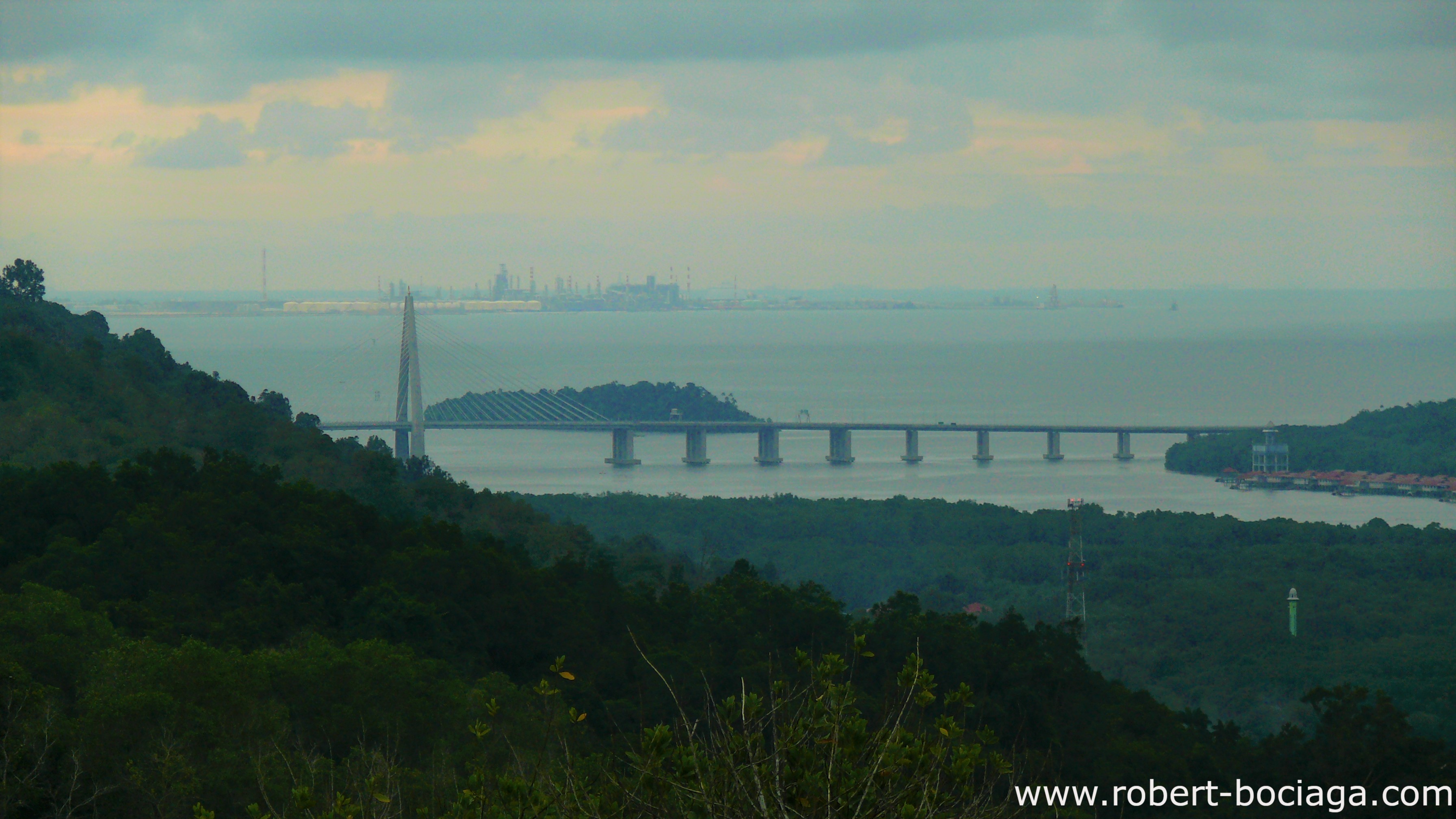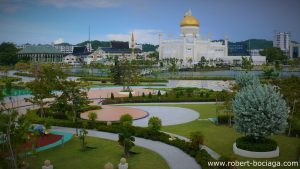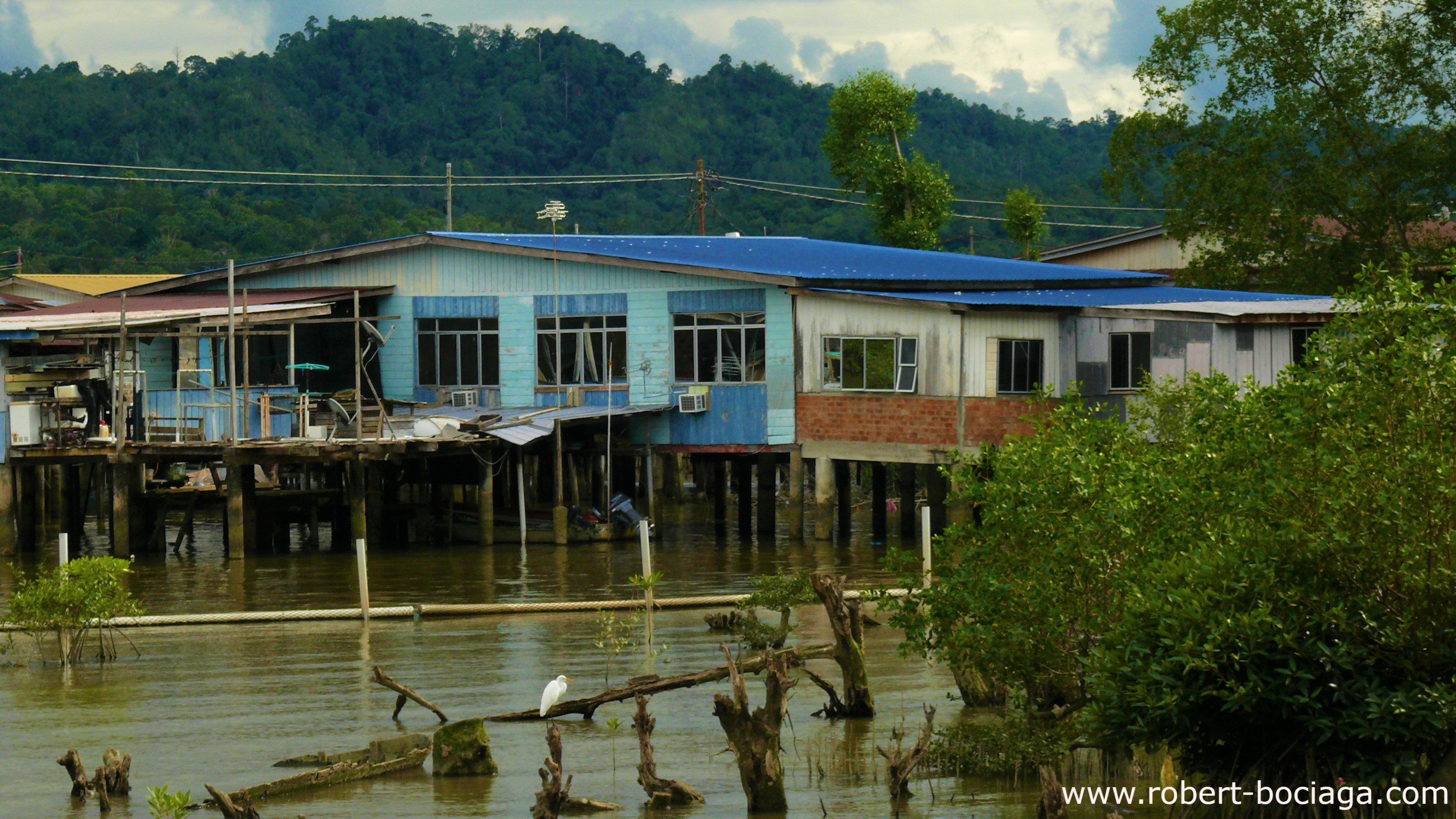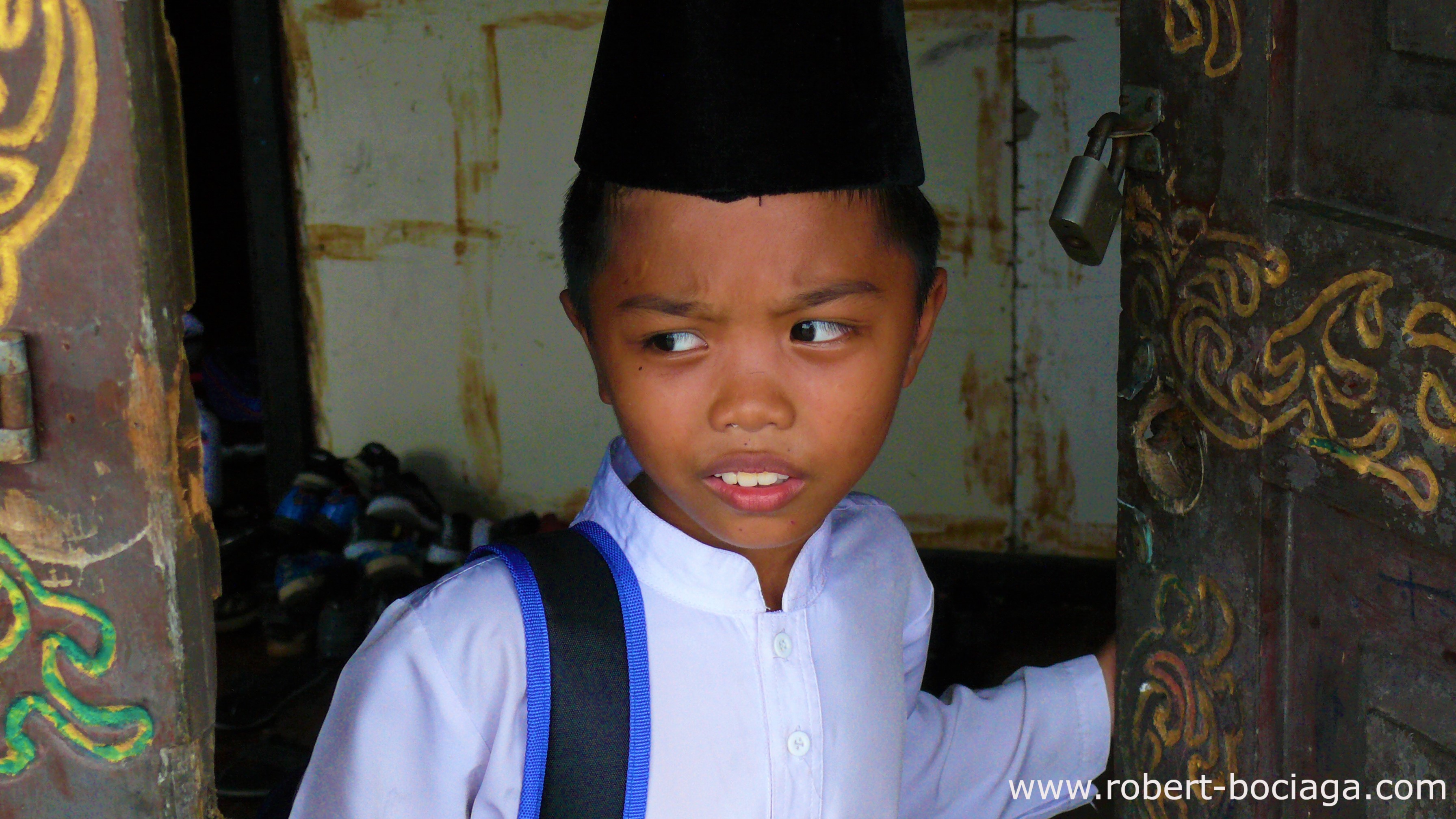In one of the last absolute monarchies of the world on the tropical island of Borneo, people call themselves the spoiled children of the sultan and do not demand democratization. But it remains to be seen how long the country’s wealth, built on oil money, will last.
It takes 3 hours to drive by car across this tiny kingdom, possessing numerous rivers and thick jungle.
Brunei has 420,000 citizens and ranks fifth in the world by GDP per capita at purchasing power parity. The oil and gas industry creates the majority of earnings, making the country vulnerable to price fluctuations. In addition, its real GDP has stagnated for many years.
The independent sultanate emerged in 1984, following the much-resented decline of the Bruneian Empire, when it lost vast territories on Borneo and today’s Philippines, by falling under the British protectorate. The country is reigned by the Bolkiah Dynasty, which has amassed billions of dollars.
Brunei’s natural resources work well for the ruler. Bandar Seri Begawan, Brunei’s capital, has the world’s largest residential palace in the world, which is the official home of the sultan. For a total cost of around $1.4 billion, Sultan Hassanal Bolkiah can revel in one of 1,788 rooms or 257 bathrooms, not to mention his banquet hall, where he can throw a party for 5,000 people. This avid car connoisseur easily accommodates his collection of 7,000 luxurious vehicles there in over 100 garages.
Throughout the decades, the infrastructure of the kingdom has remained neglected at the expense of extravagant mansions, but today, Brunei is surging in the global competitiveness index and gets high marks for its quality of roads, electricity supply, and availability of ports and air transport.
The wave of change has impacted what should be a well-preserved heritage site. Kampong Ayer (or Water Village), the world’s largest settlements on stilts, lies in the vicinity of palaces and government offices.
The settlement’s golden era can be traced back to the times when it was a de facto capital and economic center of the Bruneian Empire. Now, “Due to the outflow of people, Kampong Ayer is now the shadow of itself,” says local resident Zayed Ali, 76.
Ali retired from fishing, which now brings little profit, and switched to driving a boat taxi. “Soon, we will move out from the water village; life on the land is much more comfortable,” he says.
General economic malaise isn’t the only problem for Kampong Ayer. “In mid-January 2020, a fire broke out in the middle of the night, devastating several houses,” Ali describes. “Our neighbors lost everything and needed to be relocated to the land. It happens here every now and then; that’s why many of us consider moving out.”
Not far from the splendid Omar Ali Saifuddien Mosque, topped with marble minarets and golden domes, residents see the debris left from the fire being removed by workers in the suffocating heat of midday.
“Fortunately, there were no casualties, and the sultan has provided accommodation [for the victims] for three months,” Ali says.
Samsul Ismail, 23, works in the international hotel, earning 500 Bruneian dollars (US$360) per month. He is determined to stay with his family in Kampong Ayer. “Many people are hopeless, because of the lack of well-paying jobs. Food prices increase, but it’s still possible feed oneself for a few dollars per day,” he says.
There is no private-sector minimum wage in Brunei. In 2020, the unemployment rate is projected to trend around 9.10 percent, the highest in Southeast Asia. Despite this, Brunei attracts many foreign workers, mainly from India, Bangladesh, and the Philippines, to do the jobs the Bruneians do not want.
“The sultan spoils us with free healthcare, free education, and housing development program. We all enjoy 0 percent income tax,” Ismail explains. “In addition, he surprises us. He likes driving on his own across the sultanate in order to pay the unannounced visits to his subjects.”
Ismail describes such stories about the sultan circulating on social media. “Once, he borrowed an old car from a villager to drive around and when returned, he gave him money to buy a better one.”
Not everyone speaks of the sultan in glowing terms, however. “Many people regard him as a hypocrite, because of the rumors about his opulent parties with alcohol and foreign women,” Khairul Izam, an English teacher, shares.

Temburung Bridge, slated to become Southeast Asia’s longest oversea bridge, costs $1.6 billion. Photo by Robert Bociaga.
In 2017, the Ripas bridge was opened, linking Lumapas, which borders Kampong Ayer, with the capital. This example of improving infrastructure will be followed in 2020 by the planned inauguration of Temburung Bridge, connecting its exclave with the capital city. People living in this least-populous district cannot wait to see it. Temburung is known for its pristine national park with long-nosed monkeys, flying foxes, crocodile-filled rivers, and sparkling waterfalls. With the opening of the bridge, reaching Temburung from the international airport will become way less complicated, boosting tourism in the area.
The series of infrastructure projects that has mushroomed across the sultanate is for many a sign that the ruler is looking toward his legacy. Hassanal Bolkiah is now 73 years old, and may abdicate during lifetime like his father. Crown Prince Al-Muhtadee Billah already holds several roles in the government, in preparation to become Brunei’s leader.
Samsul Ismail rolls ambuyant, the national dish, on his chopsticks and comments: “When we send a letter to the sultan, we never know if it reaches him. For sure, the correspondence is filtered, but when the sultan learns about a problem, it gets solved fast.”
The sultan’s ministers are far less admired. With no elected representatives and constrained freedom of speech, there is no independent civil society. In 2016, the Brunei Times was shut down. Still, people are not afraid to speak out.
Recently, the international community was shocked to hear that the country enacted the Sharia Penal Code, imposing stoning, maiming, and other corporal punishments for adultery, gay sex, and theft.
However, regular Bruneians do not understand this outcry. “The law is very lenient; we are convinced that no one will ever be punished this way,” a policeman from Temburung reports. “We do not know who advised it to the sultan, but it is very hard to apply Sharia law to any case because the acts should be usually witnessed by five males of flawless reputation. Otherwise the common law applies.”
“More than by the law, I’m stressed by my family pressuring me to get married,” a 36-year-old gay man says. “I’ve been together with my boyfriend for the last eight years, staying discreet in public, but I outed myself to my circle of friend without any problems.” He adds that homosexuality has never been actively persecuted in the country.
Some say that by passing the law, the sultan wants to educate the society; this is why he reiterates Brunei’s Islamic identity in his speeches.
Islam is Brunei‘s official religion, and 83 percent of the population is Muslim, observing a less-orthodox sect of Sunnism that tolerates some pre-Islamic traditions. “We often travel to Malaysia to buy liquor and cigarettes. In terms of customs, the bride and groom wear gold jewelry (by many scholars considered an un-Islamic item) and perform some rituals derived from Hinduism,” Khairul Izam says.
In his speech of May 2019, the sultan reminded listeners about a moratorium on the death penalty for cases under civil law and confirmed that this applies for the Sharia law as well.
But Brunei’s Christian community remains concerned. In certain cases, the Sharia law may apply to non-Muslims, too.
“What was before a convention has now become the written law,” John Wong, a member of a local church, says. “We are officially banned from displaying Christmas decorations in public, even though many Muslims celebrate it in the privacy of their homes as a commercial festival.”
“We try not to get discouraged,” Wong, adds. “We all pray for the well-being of the sultan, but he never visits us.”
“The mentality here is not to bite the hand that feeds us,” he concludes. “Besides, there are not many things that spark emotion.”
Brunei has recognized seven indigenous tribes in its constitution. Although the tribes have mostly converted to Islam or Christianity, there are still people that practice animism. “We are not discriminated [against] on the base of religion or ethnicity. That’s why we love the sultan,” Natasha Budin declares.
As an Iban tribe member, she comes from a family that still lives in a long house. Her traditional home consists of a very long, narrow, covered veranda with numerous doors, where the whole village lives under one roof.
“No one is left behind. Education is compulsory and many of us work in the administration. Needless to say, the government worker salary is very good; however, we are expected to make a lot of extra hours, often not related to our profession,” she reports. “Noteworthy, we do not experience a gender pay gap.”
Brunei ranks high in gender parity in education and health as well as in women’s participation in the economy.
According to watchdog Transparency International’s 2019 Corruption Perception Index, Brunei’s corruption is seen as the second lowest in the region, behind only Singapore.
But the good times may not last forever. The fluctuation in oil prices over the last years must have alerted the sultan to seek economic diversification. According to the BP World Energy Outlook, at its current pace of extraction, Brunei has hydrocarbon resources left for just 15 years.
If the money source dries out faster than calculated, the supreme ruler may face the need to cut the extensive social benefits.
The 1997 Asian financial crisis left the country devastated and forced people to tighten belts, which was exemplified in the steps taken in region’s most lavish entertainment park: Jerudong Park. Previously sheltered in the sultan’s bubble, citizens were suddenly stripped of free admission to the park.
Nowadays, the country is praised by the International Monetary Fund for undertaking wide-ranging fiscal reforms; however, it is stated that Brunei’s excess revenue is still not being invested in development and technology transfer, but held overseas.
Whereas the need for diversification has been recognized in various government development plans, the lack of aggressive measures to reform the economy could soon challenge the status of this wealthy country. In the future, keeping the Bruneian dollar pegged to Singapore’s currency may become a thorny problem, if the country’s reserves melt considerably.
In order to survive as a high-income society, Bruneians need to release their entrepreneurial spirits, currently chained by shackles made out of social welfare benefits. Putting their hope only in the sultan’s goodness and infallibility could prove subversive to their quality of life in the long run.
Robert Bociaga (www.robert-bociaga.com) is a traveling photojournalist who focuses on social issues around culture change, urbanization, political marginalization, poverty, religion, and destruction of nature. He holds a master’s degree in law.



































